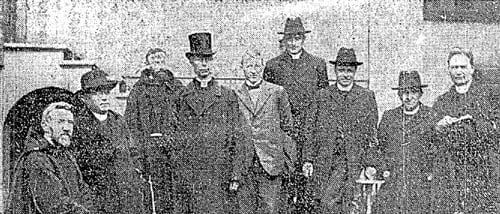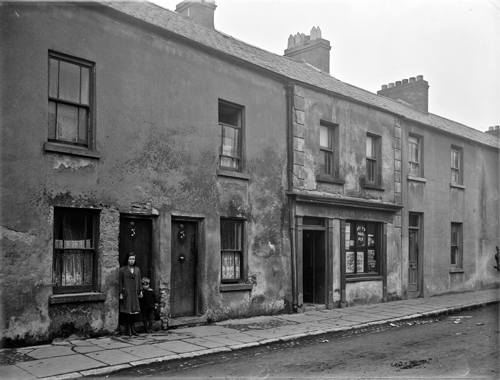Death to the Irish pub? Catholic temperance reformers urge a slashing of pub numbers
Dublin, 26 September 1923 - Cut the number of pubs by half and impose restrictions on opening hours, including Sunday closing. This is what the Catholic hierarchy regards as a moderate programme of reform as a number of bishops have given their endorsement to Catholic Total Abstinence Federation’s plan for temperance reform. This plan was outlined at a well-attended meeting in Dublin’s Mansion House last night, alongside a demand that it be immediately adopted by the Free State government.
In setting out the Federation’s programme last night, it's president the Rev. Dr. Coffey, said that its leading feature was its ‘moderation’, a term that was also used in a number of the endorsements that were issued by prominent Catholic bishops.
For instance, the Most. Rev. Dr. Browne, Bishop of Cloyne, wrote to the Federation to declare the proposals ‘moderate and prudent.’
Last night’s meeting was informed that there were approximately 17,000 public houses in Ireland, which equated to something like one for every 200 people. It was therefore not too much, Canon Lyons, parish priest of Ardee, remarked, to ask that half of these pubs be wiped out.
Also addressing the meeting was Mr. T.J. Fullerton, Bachelor of Laws, who spoke on the issue of temperance legislation, ‘there is a certain amount of romance associated with alcoholic beverages’, Mr. Fullerton observed in his wide-ranging address. ‘It is easier to think of the songs that have praised the joys of wine than those that have praised the beauty of sobriety’. He stated that the proposed programme of reform was aimed to ‘enhance the attractive aspect of the positive result the programme is designed to effect.’

Executive Committe Catholic Total Abstinece Congress (Image: Irish Independent, 27 September 1923)
Mr. Fullerton recommended that the licensing laws be reformed in such a way that:
(i) All public houses should contain a large, airy room, with tables set for refreshments for the people who went there.
(ii) No drinking be allowed at the counter or in private apartments, all drink to be supplied at the tables.
(iii) That the publican should be obliged to supply with equal efficiency non-alcoholic drinks, as well as tea and coffee.
(iv) That all public houses not prepared to provide facilities in this way should be abolished.
Mr. Fullerton’s suggestions were not met with universal acceptance. Inchicore-based priest, Rev. T.W. Ryan believed that Mr. Fullerton's proposals would make alcoholic drinking popular, whereas the only effective means of countering the evils of alcohol was prohibition. Fr. Ryan was not alone in objecting to Mr. Fullerton’s proposed reforms. Dr. Coffey, first president of the Catholic Total Abstinence Federation of Ireland, also argued that Mr. Fullerton’s proposals would not advance the temperance cause.
Dr. Coffey added that while he was not opposed to the idea that compensation be paid to traders forced to close their public houses, he believed that it needed to be paid by the drinking section of the community by means of a fund derived from a levy placed on the remaining public houses.
[Editor's note: This is an article from Century Ireland, a fortnightly online newspaper, written from the perspective of a journalist 100 years ago, based on news reports of the time.]





















